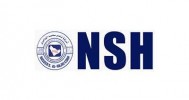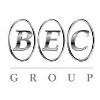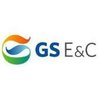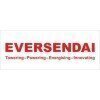Filter interviews by
GS Engineering & Construction Process Engineer Interview Questions and Answers
GS Engineering & Construction Process Engineer Interview Experiences
1 interview found
I applied via Referral and was interviewed in Apr 2024. There were 2 interview rounds.
MCQ Paper around 20 questions half hour
(3 Questions)
- Q1. Procedure for PSV Sizing
- Ans.
PSV sizing involves determining the required relief capacity for a pressure safety valve based on process conditions.
Identify the process conditions such as maximum allowable working pressure, maximum allowable temperature, and maximum flow rate.
Calculate the relieving rate required to protect the equipment or system in case of overpressure.
Select a suitable PSV based on the relieving rate, set pressure, and other fact...
- Q2. Pump Hydraulic Calculation Procedure
- Ans.
Pump hydraulic calculation involves determining the required pump head, flow rate, and power consumption for a specific system.
Identify the system requirements such as desired flow rate and total dynamic head
Calculate the total dynamic head by considering friction losses, elevation changes, and other factors
Determine the pump efficiency and select a pump that meets the system requirements
Calculate the power consumption...
- Q3. Vessel Level Arrangement Questions
Interview Preparation Tips
Top trending discussions






Interview questions from similar companies

(2 Questions)
- Q1. Questions will be asked on previous company roles and responsibilities.
- Q2. Depends upon previous experience.
(2 Questions)
- Q1. Basics on structure and finishings
- Q2. Questions on structure and finishings
Interview Preparation Tips

I applied via Approached by Company and was interviewed in Feb 2023. There were 3 interview rounds.

(1 Question)
- Q1. 1. Diff. Type Flow Meter Concept 2. Temperature Compensation in thermocouple 3. SPI modules 4. Level Mesurment
(1 Question)
- Q1. Personal Questions about salary negotiation
Interview Preparation Tips

Senior Engineer Interview Questions & Answers
Oceaneering Internationalposted on 22 Feb 2022

(1 Question)
- Q1. Related to cad and design
Interview Preparation Tips

I applied via Referral and was interviewed before Mar 2023. There was 1 interview round.
(5 Questions)
- Q1. Explain the project lifecycle
- Ans.
The project lifecycle is the series of phases a project goes through from initiation to completion.
Initiation: Define project goals, scope, and stakeholders
Planning: Create a detailed project plan, schedule, and budget
Execution: Implement the project plan and deliver the project
Monitoring and Controlling: Track progress, manage changes, and ensure quality
Closing: Finalize all project activities and hand off deliverable
- Q2. What was your role and contribution to the project
- Q3. What are the contents of model reviews
- Ans.
Model reviews typically include checking for accuracy, completeness, consistency, and compliance with standards.
Checking accuracy of dimensions and specifications
Ensuring completeness of all required components and features
Verifying consistency in design and documentation
Confirming compliance with industry standards and regulations
- Q4. What is the typical deliverables of the different deliverables
- Ans.
The typical deliverables of a project engineer include design drawings, technical specifications, project schedules, cost estimates, and progress reports.
Design drawings: detailed plans and schematics for construction or manufacturing
Technical specifications: detailed requirements for materials, equipment, and processes
Project schedules: timelines for completing tasks and milestones
Cost estimates: budget projections fo...
- Q5. Why this company
Interview Preparation Tips
Skills evaluated in this interview

(3 Questions)
- Q1. Different transformer protection
- Ans.
Different transformer protection methods include overcurrent protection, differential protection, and distance protection.
Overcurrent protection: Protects against overloads and short circuits by tripping the circuit breaker when current exceeds a certain threshold.
Differential protection: Compares the current entering and leaving the transformer to detect internal faults.
Distance protection: Uses impedance measurements...
- Q2. Variable frequency drive working
- Ans.
Variable frequency drive (VFD) controls the speed of an electric motor by varying the frequency and voltage of the power supplied to it.
VFDs are commonly used in industrial applications to control the speed of pumps, fans, compressors, and other motor-driven equipment.
They work by converting fixed frequency AC power to variable frequency AC power using semiconductor devices.
VFDs can improve energy efficiency, reduce we...
- Q3. Speed control of motor
- Ans.
Speed control of a motor is achieved by varying the voltage or frequency of the power supply.
Speed control can be achieved by adjusting the voltage supplied to the motor.
Alternatively, the frequency of the power supply can be varied to control the speed.
Using a variable frequency drive (VFD) allows for precise control of motor speed.
Feedback control systems can be implemented to maintain a constant speed under varying


(1 Question)
- Q1. Interviewers ask regarding technical question
(1 Question)
- Q1. Year of experience, How much salary you get, salary expectation
Interview Preparation Tips


(1 Question)
- Q1. Sector based questions, similar to job oriented
(1 Question)
- Q1. Like case studies, or situational task
(1 Question)
- Q1. About personal and professional expectations
Interview Preparation Tips
Process Engineer Interview Questions & Answers
Factocad Robotics and Automationposted on 20 Nov 2024
I applied via Approached by Company and was interviewed in Oct 2024. There was 1 interview round.
(2 Questions)
- Q1. What is 321 principle in GD&T
- Ans.
The 321 principle in GD&T refers to the rule that a feature must be within a specified tolerance zone defined by three datums.
321 principle states that a feature must be located within a tolerance zone defined by three datums
The first datum constrains movement in one direction, the second datum constrains movement in a second direction, and the third datum constrains movement in a third direction
This principle ensures ...
- Q2. How you ensure quality of product
- Ans.
Quality of product is ensured through rigorous testing, adherence to standards, continuous improvement, and collaboration with cross-functional teams.
Implementing quality control measures throughout the production process
Conducting regular inspections and audits to identify and address any issues
Utilizing statistical process control techniques to monitor and improve product quality
Collaborating with suppliers to ensure...
Process Engineer Interview Questions & Answers
Chemvap Engineering Private Limitedposted on 4 Jul 2024
I applied via Referral and was interviewed before Jul 2023. There were 2 interview rounds.
(7 Questions)
- Q1. What is pump hydraulic calculation?
- Ans.
Hydraulic calculation for pumps involves determining the flow rate, pressure, power, and efficiency of a pump system.
Calculate flow rate using the formula Q = VA, where Q is flow rate, V is velocity, and A is cross-sectional area.
Determine pressure using the formula P = F/A, where P is pressure, F is force, and A is area.
Calculate power using the formula P = Q*H*rho*g, where P is power, Q is flow rate, H is head, rho i...
- Q2. What are types of pumps?
- Ans.
Types of pumps include centrifugal pumps, positive displacement pumps, and axial flow pumps.
Centrifugal pumps: use a rotating impeller to increase the pressure of a fluid.
Positive displacement pumps: trap a fixed amount of fluid and then force it into a discharge pipe.
Axial flow pumps: move fluid parallel to the pump shaft.
Examples: Centrifugal pump - water pump, Positive displacement pump - diaphragm pump, Axial flow
- Q3. Explain your achievements?
- Ans.
I have successfully led process improvement projects resulting in cost savings and increased efficiency.
Led a team in implementing a new production process that reduced waste by 20%
Developed and implemented a new quality control system that improved product quality by 15%
Identified and resolved bottlenecks in the production line, increasing output by 10%
- Q4. Any cost reduction experience related to process plants?
- Ans.
Yes, I have experience in implementing cost reduction strategies in process plants.
Implemented lean manufacturing principles to reduce waste and improve efficiency
Optimized equipment maintenance schedules to minimize downtime and reduce costs
Negotiated better pricing with suppliers to lower material costs
Introduced automation technologies to streamline processes and reduce labor costs
- Q5. Troubleshooting experience in process plants?
- Ans.
I have extensive troubleshooting experience in process plants, identifying and resolving issues to ensure smooth operations.
Identifying root causes of process issues
Developing and implementing solutions to improve efficiency
Collaborating with cross-functional teams to troubleshoot complex problems
Utilizing data analysis and problem-solving skills
Adapting quickly to changing situations and priorities
- Q6. Describe Detailed Pump hydraulic calculation?
- Ans.
Pump hydraulic calculation involves determining the pump head, flow rate, and power requirements for a specific system.
Calculate total dynamic head (TDH) by adding the static head, friction head, and velocity head
Determine the required flow rate based on system requirements
Calculate the pump power requirements using the formula: Power (kW) = (Q x TDH) / (3.6 x efficiency)
Consider factors such as pump efficiency, pipe s
- Q7. What is Coefficient of Control valve?
- Ans.
The coefficient of a control valve is a measure of the valve's flow capacity relative to the pressure drop across it.
The coefficient of a control valve, also known as the flow coefficient (Cv), is a dimensionless number that represents the flow capacity of the valve for a given pressure drop.
It is used to compare the performance of different valves and is typically determined experimentally.
A higher coefficient indicat...
(2 Questions)
- Q1. About salary expectation
- Q2. Reason for job change
- Ans.
Seeking new challenges and opportunities for professional growth.
Looking for new challenges to expand my skill set
Seeking opportunities for career advancement
Interested in working in a different industry or with new technologies
Interview Preparation Tips
- Pumps
- Control Valves
- Previous experience
- Heat Exchangers
- Steam economy
- Mass heat balance
GS Engineering & Construction Interview FAQs
Tell us how to improve this page.
GS Engineering & Construction Interviews By Designations
- GS Engineering & Construction Project Manager Interview Questions
- GS Engineering & Construction Static Design Engineer Interview Questions
- GS Engineering & Construction Process Engineer Interview Questions
- GS Engineering & Construction Instrument Engineer Interview Questions
- GS Engineering & Construction Piping Supervisor Interview Questions
- GS Engineering & Construction Insulation Supervisor Interview Questions
- GS Engineering & Construction Quantity Surveyor Interview Questions
Interview Questions for Popular Designations
- Process Engineer Trainee Interview Questions
- Process Associate Interview Questions
- Chemical Process Engineer Interview Questions
- Junior Process Engineer Interview Questions
- Processing Executive Interview Questions
- Process Developer Interview Questions
- Assistant Manager Process Engineering Interview Questions
- Process Quality Engineer Interview Questions
- Show more
GS Engineering & Construction Process Engineer Interview Process
based on 1 interview
Interview experience
Interview Questions from Similar Companies
|
Principal Engineer
58
salaries
| ₹15.5 L/yr - ₹33.2 L/yr |
|
Functional Manager
20
salaries
| ₹16.5 L/yr - ₹29 L/yr |
|
Piping Engineer
19
salaries
| ₹10 L/yr - ₹38.5 L/yr |
|
Senior Engineer
17
salaries
| ₹12 L/yr - ₹26 L/yr |
|
Piping Designer
16
salaries
| ₹7.4 L/yr - ₹10.6 L/yr |

Nasser S. Al Hajri Corporation

Saudi Binladin Group

Bahwan Engineering

Tractebel
- Home >
- Interviews >
- GS Engineering & Construction Interview Questions >
- GS Engineering & Construction Process Engineer Interview Questions











